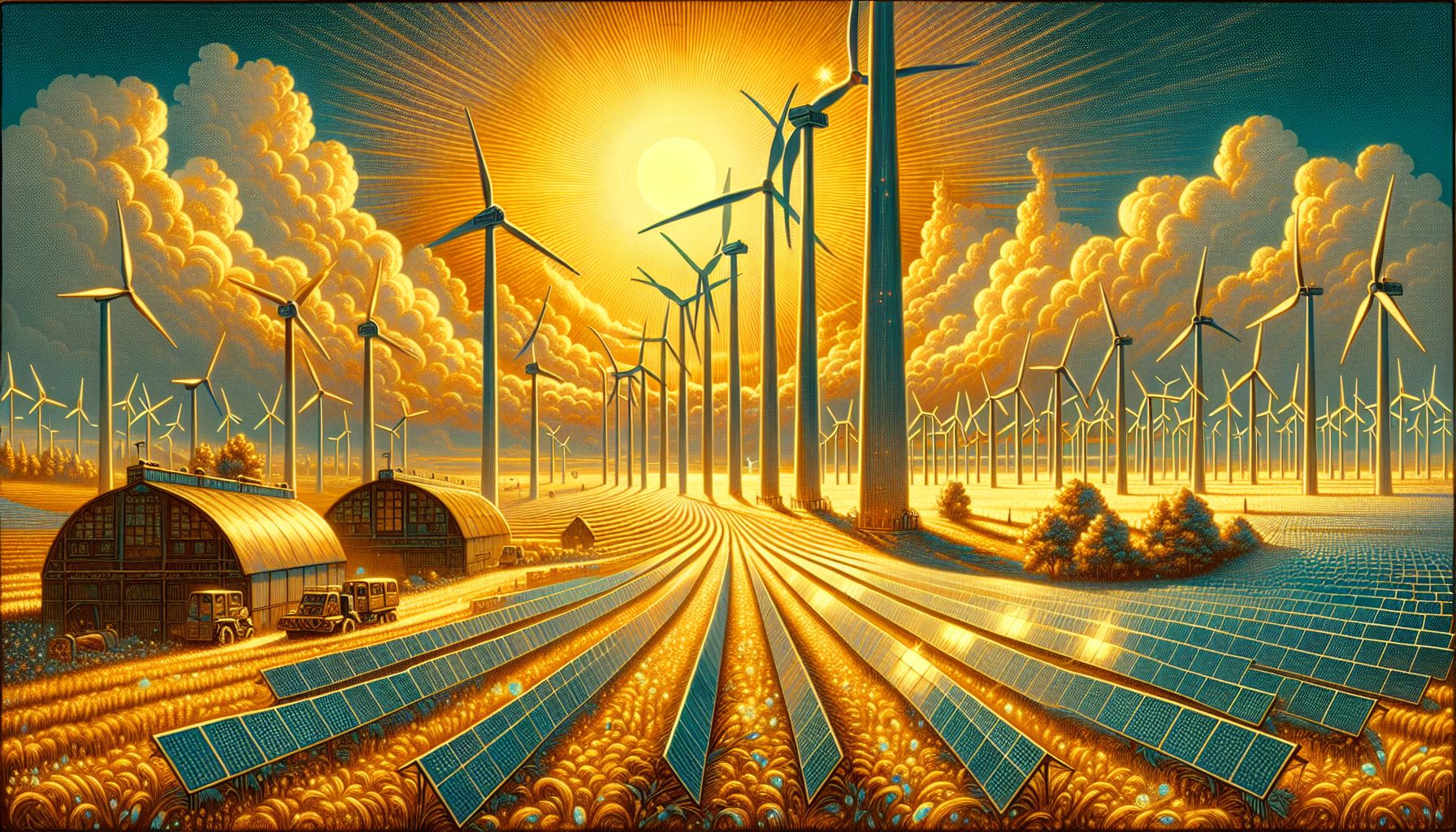EU's Green Milestone: Wind and Solar Surpass Fossil Fuels

Europe, Wednesday, 31 July 2024.
In a historic shift, wind and solar energy have outpaced fossil fuels in EU electricity generation, accounting for 30% of power production in the first half of 2024. This milestone marks a significant step towards sustainable energy and reduced emissions across Europe.
Decline in Fossil Fuel Usage
During the first six months of 2024, fossil fuel electricity generation in the European Union dropped to 27%, a considerable decrease compared to previous years. Coal and gas, traditionally dominant sources, saw declines of 24% and 14% respectively. This shift is not only a testament to the growing efficiency and capacity of renewable energy but also a reflection of the EU’s concerted efforts to reduce greenhouse gas emissions and combat climate change.
Emissions Reduction
The overall emissions from the power sector in the EU have reduced by 31% compared to the same period in 2022. This reduction is significant in the context of global climate goals and the EU’s commitment to the Paris Agreement. The decrease in fossil fuel use and the rise in renewable energy adoption have been pivotal in achieving these lower emission levels.
Growth in Renewable Energy Capacity
The growth in renewable energy capacity has been substantial, with solar energy generation increasing by 20% (23 TWh) and wind energy by 9.5% (21 TWh) compared to the first half of 2023. Major EU countries like Italy, Spain, and France have been at the forefront of this transition, significantly cutting down their fossil fuel usage. This surge in renewable energy generation has been facilitated by ongoing investments and supportive policies from the EU and its member states.
Policy and Expert Insights
Experts at Ember, a climate and energy think tank, emphasize the need for continuous policy action to sustain the growth of renewable energy. They highlight the importance of addressing grid capacity constraints and market barriers to ensure the reliability and scalability of renewable energy sources. Additionally, the International Renewable Energy Agency (IRENA) supports countries, including those in the EU, in their transition to sustainable energy through various initiatives and publications.
Future Projections and Challenges
Looking ahead, the International Energy Agency (IEA) projects a 2.3% annual increase in EU electricity demand from 2024 to 2026. To meet this growing demand sustainably, continued investment in renewable energy infrastructure and innovation is crucial. The EU’s achievements thus far set a precedent, but the path forward will require coordinated efforts to overcome technical and logistical challenges in the renewable energy sector.

